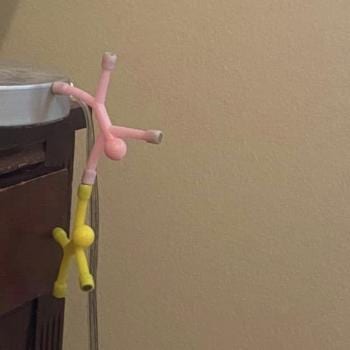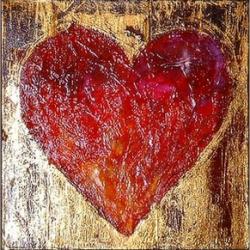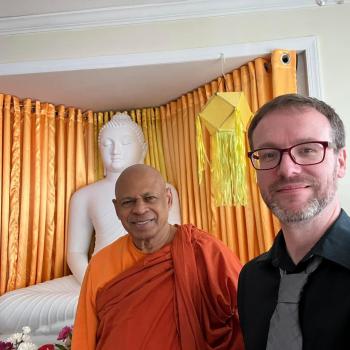The path of Metta is a radical path.
Boundless kindness is outside of our normal way of doing things. We may even feel compelled to ask say things like, “If I’m nice to people, they’ll take advantage of me.” Sensitivity is seen as a weakness and we actually have terms in our language that exist to convey the message that we care too much about other people. Many years ago the term ‘bleeding heart’ was the one that got thrown around. These days it’s terms like ‘snowflake’ and ‘woke’.
So, when we decide to shift our attitude and perspective in order to learn how to come from a place of kindness, it’s really an act of rebellion. A peaceful and loving rebellion, but a rebellion nonetheless. It’s a rebellion against our aversion and delusion. This is how we step into our power. We don’t have to let ourselves be pulled around by aversion, greed, and ignorance. We can choose to focus on other things. We have that power.
And what I’m talking about here is having a boundless heart. What does that mean? It means no one gets left out.
In her book ‘Boundless Heart’ Christina Feldman writes, “We have choices about what we feed in any moment. If we feed the voices of judgment and blame with attention, thought, and reactivity, they will grow and strengthen. If we feed the intention of metta through returning our attention to the phrases of and the commitment to caring, the intention will also grow and strengthen.”
Make Friends With Your Mind
That’s what we’re trying to do here. Well, part of what we’re trying to do anyway. Our mind is often not a good friend to us. We carry around baggage that doesn’t serve us. We give in to temptations when we really should know better. We make bad choices. We spend endless time ruminating on things that don’t need our attention. We are carried around by waves of greed and hatred that prevent us from finding some measure of joy and contentment in life. There is little in life that gets in our way more than our own minds. We struggle and we often re-create or re-live our struggles. Also, with our perceptions we shape the world. We expect a bad day and then we have a bad day. It happens all the time. And we spend an inordinate amount of time feeling shame, thinking we are not good enough for this world, thinking others are better than us and some people have life all figured out.
You are good enough. We soften our hearts toward ourselves by realizing this.
Christina Feldman says, “We are cultivating a mind/heart that is a true friend, a refuge, capable of deep creativity and understanding where we can abide.”
Make Friends With Others
How do we soften our hearts toward others?
Generosity.
That doesn’t mean giving material things, at least not necessarily. Giving anything is an act of generosity. Sure, you can give someone food to eat. But you can also give them attention. You can give them your time. You can give a shoulder to cry on. All these things are forms of generosity. Giving someone cash should not be seen as superior to giving someone your attention through active listening. They are forms of giving and one isn’t better than the other.
Feldman says, “Generosity is the foundation upon which the entire path of awakening rests. It gladdens and enriches our hearts and lives and the lives of all. It is the antidote to the fearful, defended heart that lives in fear of loss and deprivation.”
We can learn to stop thinking “what about me?” all the time and instead start thinking, “how can I help?”
And the truth is we need other people. Sometimes we think we don’t. “I don’t care what people think” and “I can handle this on my own” are popular sentiments. Community is part of Buddhism, and every other spiritual path that I know of, for a reason. We are social beings. We don’t walk this path alone and we wouldn’t want to. Connecting with others brings us more benefit than we realize.
We put people into little categories. The traditional way of thinking about other people is ‘the friend’, ‘the neutral person’, and ‘the difficult person’.
Real life rarely has categories that are so simple. But it’s a lot easier for us to think of softening our hearts toward friends than it is toward difficult or neutral people. And this path calls us to leave no one out. A neutral person is someone who doesn’t mean much to you. A co-worker you never talk to, a friend’s relative you met once, the mailman…whatever. Someone like that. We are indifferent toward a whole lot of people we meet in our lives. Opening our hearts means not being indifferent anymore. Everyone has many of the same struggles we have. Everyone has goals that feel unattainable. Everyone is growing old and watching people the love pass away. We are all in this together. I like to say sometimes that we are acting like we’re living in a house that’s on fire and we’re arguing about the furniture instead of helping each other get out.
About the neutral person Feldman says, “Indifference can be transformed into care through our intention to attend wholeheartedly to the person who stands in front of us. We cultivate a way of being in the world where no one needs to earn or be deserving of our care and no one is deprived or exiled from the boundless kindness possible for each of us.”
What about the difficult person?
I’m not suggesting anyone must immediately forgive and forget abuse that was done to them or something. When I lead Metta practice I always tell people they may not want to bring to mind the most difficult person they’ve ever encountered. It can be dangerous to try to soften your heart too quickly toward someone that has really seriously harmed you. But the difficult person isn’t limited to the person that stole your car or killed your loved one. The difficult person can also be represented by that person who annoys you for no reason. Or that person that cuts you off in traffic. Or that person who is a little bit too pushy about trying to get your attention.
We again have to remind ourselves that other people are people too, that even difficult people have the same wishes and struggles that we do. That’s hard to remember. We forget that other people are people sometimes. We really do.
That’s why we try to cultivate a boundless heart. It’s a better way to live. We will be happier that way.
Feldman describes having a boundless heart in this way:
“All beings are worthy of metta; all beings benefit from metta – it describes the most liberated and caring way of being in the world that cries out for the generosity, kindness, and mindfulness that metta brings…we learn to open our eyes and hearts, to see and respond with care to everyone and everything that come into our world without exclusion.”
And the Buddha said, “This is the most noble way of living in this world, here and now.”
I think that’s true.
================================
If you want to take a class I’m teaching online with the Rime Center about living with a Boundless Heart, click here:
Boundless Heart Class – Online
here’s a guided metta meditation:
Boundless Heart Guided Meditation
and here’s another one with a talk on the subject included:
Boundless Heart talk + meditation
if you are interested in Christina Feldman’s book “Boundless Heart” you can get it here. Highly recommend.












